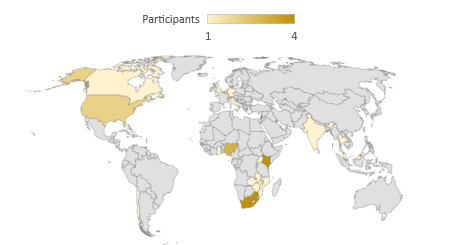Individuals experience antimicrobial resistance (AMR) differently, but the extent and unique ways to which gender impacts this experience is relatively underexplored. Furthermore, research processes can exacerbate gender inequality and prevent inclusive practice. To address this gap, IDRC and ICARS have jointly organised roundtable discussions to identify priority research areas relating to gender and the prevention and containment of antimicrobial resistance across the One Health spectrum. The output from the roundtables will be important for ICARS and IDRC to build organisational knowledge and gather stakeholder and experts’ input to better understand inclusive processes. A specific, immediate output will be to inform a Request for Proposal (RFP) for a project to address the actionable research gaps.
Background
Despite gender equality being a recognised priority within the health and development agenda, there have been limited reviews and studies looking at the interplay between gender and AMR, and even less investigating best practices for incorporating a gender lens in AMR research. To ensure that interventions do not have unintended consequences on gender equality, AMR policies, interventions and programmes must be context specific and designed with the users and beneficiaries in mind. Limited recognition of existing inequalities could undermine the sustainability, uptake and effectiveness of real-world solutions, and miss an important opportunity to have wider systemic benefits on equality.
Roundtables
The three roundtables brought together gender research experts, individuals working at the gender and AMR intersection, AMR experts, and policymakers. Participants brought with them diverse expertise from across human, animal, and environmental health sectors, as well as contextual insights from Africa, Latin America, South East Asia, Europe and North America.

Using participatory methods and facilitated by an external moderator, each of the three-hour sessions used virtual card storming techniques, which allowed all participants to respond to key questions and then discuss thematic groupings for the ideas raised. This data will then be synthesised into a report to inform the RFP development.
Request for Proposal
The priority knowledge gaps identified by the three expert roundtables will be used to inform and refine the scope of an RFP for a research project on gender and AMR. The RFP will be open for applications from research organisations in early 2022, and will be made available on ICARS’ website.
The research organisation whose proposal is successful will be commissioned for a year-long project to:
- Synthesise priority research gaps and challenges to address gender equality in AMR intervention and implementation research in LMICs
- Provide a final guidance document with best practices and lessons learnt for the better integration of a strong gender lens in AMR research
The resources developed as a result of this project are intended to be used in IDRC and ICARS projects and made widely available.
Whilst this is only a modest attempt to address this issue, ICARS and IDRC are hopeful that it will spark further reflection and activities in and beyond our organisations. The roundtable and RFP process are an exciting first step that could support the scoping and further development of future collaborations working at the intersection of gender and AMR. Emerging feedback from the roundtable participants has been extremely positive and the process has already sparked individuals to reassess the gaps in their own AMR work:
“This was an exciting process and as I was reflecting, I was wondering how come we have gone that far with AMR mitigation without thinking about gender in a holistic way?”
“I have been working for more than 20 years on AMR and this is the first time in my life that we are speaking about AMR and gender. This was a very enriching discussion.”
About IDRC
IDRC brings a 50-year history of investing in high quality research and innovation, sharing knowledge and mobilizing alliances to support more sustainable and inclusive societies in the developing world. IDRC supports the generation of knowledge – including by individuals from diverse genders, communities, histories, and experiences – that tackles the systems that perpetuate inequalities. IDRC-supported research in neglected livestock diseases and AMR animal production, as well as, women empowerment in the global South addresses important One Health research gaps. IDRC recognizes that the skills and expertise for research and innovation must exist within developing countries for solutions to be sustainable and works directly with researchers in developing regions to respond to critical global priorities.

